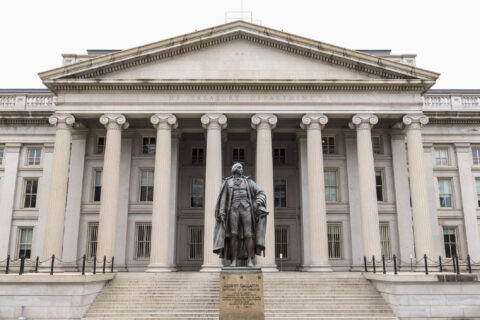This month, the National League of Cities (NLC) is celebrating Workforce Development Month, annually celebrated and recognized by congressional leadership as a time to reflect upon the contributions of our nation’s workforce and the role that workforce development plays in supporting workers and growing our economy.
This year, Workforce Development Month comes at a time when workforce needs, including workforce shortages, are heightened across many industries and in communities of all sizes. As local leaders work to implement the Bipartisan Infrastructure Law (BIL) and respond to growing and changing employer trends, ensuring we invest in and support local workforce is essential to local economic recovery. Whether it be filling quality infrastructure jobs or meeting the municipal staffing needs in cities, towns and villages, addressing the education, training and career advancement needs of the workforce across the nation is crucial for the local economy.
While many communities have leveraged their ARPA dollars, general budget funds and philanthropy dollars to support local workforce strategies, local governments should also be working to leverage other federal funds, including those provided through the Workforce Innovation and Opportunities Act (WIOA), which funds the bulk of the federal government’s 43 employment and training programs The 2022 WIOA bill has passed the House and awaits Senate action. The House version of the bill invests $74 billion dollars over six years in the WIOA system, more than doubling the number of individuals who can receive training, to ensure workers can get the skills they need to secure more sustainable careers.
Today, local governments continue to commit to workforce development in their own communities. Below are examples of how cities have addressed and are addressing workforce development. Additional examples of how cities are leveraging their State and Local Fiscal Recovery Fund (SLFRF) dollars (provided through the American Rescue Plan Act) to invest in workforce development can be found on the American Rescue Plan Action Tracker, provided through the partnership of NLC, National Association of Counties and Brookings Metro.
Cities Addressing Workforce Needs
- The City of Tacoma, WA implemented a new “Healthcare Apprentice Pathways” pilot program to strengthen work options with wrap-around support for vulnerable residents. Through their participation in the NLC Mayor’s Institute to Spur Job Creation and Economic Opportunity to Improve Health and Equity through COVID-19, city leaders were able to focus on the deployment and implementation of this apprenticeship program which was a collective effort between community partners and city leaders. Each Tacoma resident enrolled in the program received full wrap-around support during the training and up to six months after the program. This support included access to transportation, childcare, technology, and cash stipends.
- The City of Riverside, CA committed a portion of their SLFRF to provide scholarships to their residents who may have experienced negative economic impacts during the pandemic for workforce and job training programs. There is a specific focus on the agricultural workforce, with an aim to increase the skills of these workers and simultaneously contribute to increased food production to build food resiliency.
- The City of Newark, NJ has also dedicated some of its SLFRF funds to invest in workforce development in their community. Funding has been allocated in this city to cover workforce development for residents with prior justice system involvement or those previously incarcerated and will also go toward micro-enterprise development for small city-owned businesses.
- The City of Detroit, MI launched the “Skills for Life” program in 2021. This program is designed to be a comprehensive career development and advancement program aiming to pay up to 2,200 Detroit residents to learn new job skills and remove education barriers to employment as they work to make physical improvements to Detroit neighborhoods. The city council approved up to $75 million dollars in SLFRF funds to pay for the various training programs and salaries for participants.
Ways to Engage in National Workforce Development Month
Meet With Your Congressional Delegation
An effective way to show support for the recognition of Workforce Development Month and to highlight the workforce investment needs in your community is to meet with your congressional members or their staff.
As highlighted above, Congress has not yet reauthorized the important federal funding investments in the Workforce Innovation and Opportunity Act, which has great effects on local governments. If your community has benefited from past WIOA investments, consider hosting a meeting or site visit with your delegation and come prepared with a fact sheet that outlines the program accomplishments funded with WIOA dollars, the number of beneficiaries served, the number of jobs created/retained, how the dollars benefitted underrepresented communities and other information that relays the impact of the program. You can also amplify how these investments have worked in tandem with local funding or other federal resources.
Bring Together Community Stakeholders
Community stakeholders including local educational and academic institutions, non-profit organizations, employment agencies, and businesses of all sizes are essential to telling the workforce story in your community! This month may provide a strategic opportunity to bring the stakeholders together to have focused dialogues on the workforce development needs and opportunities in your community and region.
One way to feature the focus of partnership around workforce development is to gather quotes or feature local workforce programs in the press or on social media.
Adopt a National Workforce Development Month Proclamation
NLC prepared a template proclamation local governments may choose to modify and adopt to show their support for National Workforce Development Month. The template for the proclamation can be accessed here.
Commit to the Talent Pipeline Challenge
In recognition of the high workforce needs in the infrastructure sector, the Biden-Harris Administration launched the Talent Pipeline Challenge to fill the new high-quality jobs needed to rebuild our infrastructure and supply chains that are needed for success in the nation’s investments in infrastructure through the Infrastructure Investment and Jobs Act or the Bipartisan Infrastructure Law (BIL). Local governments can sign on to the challenge here.











